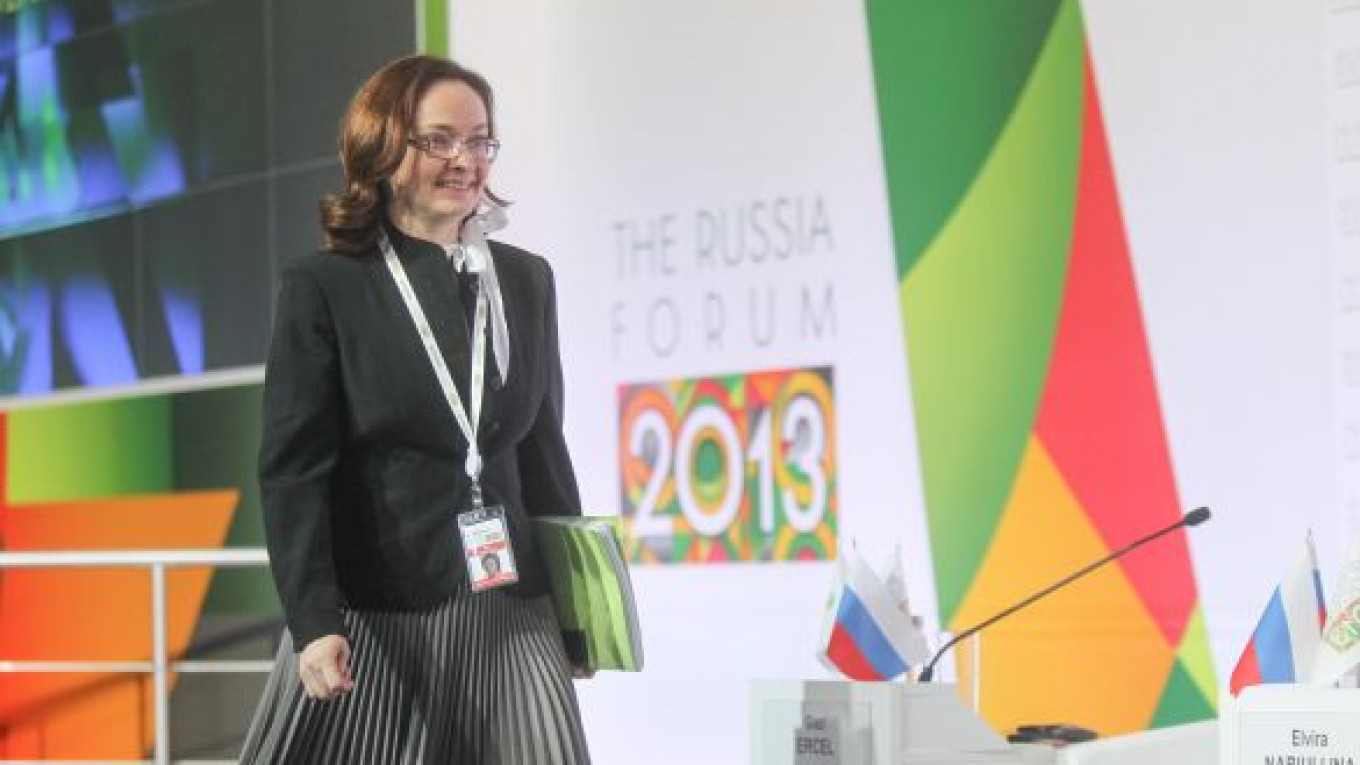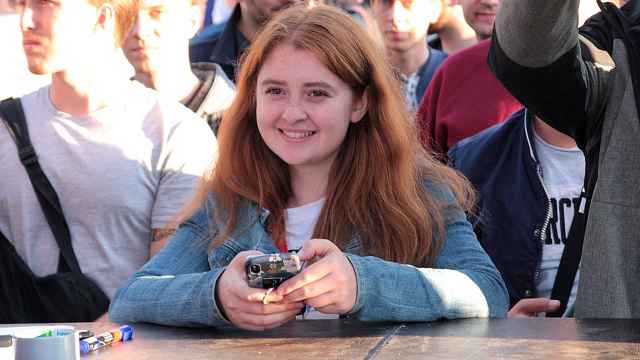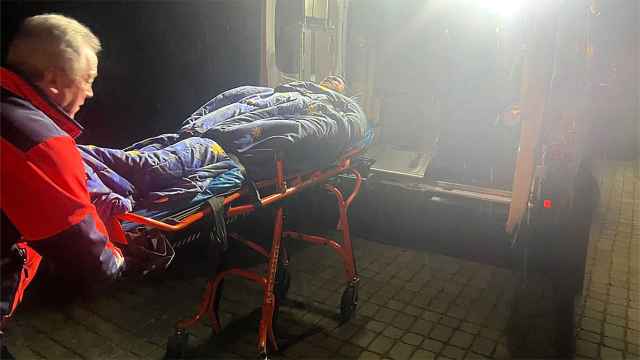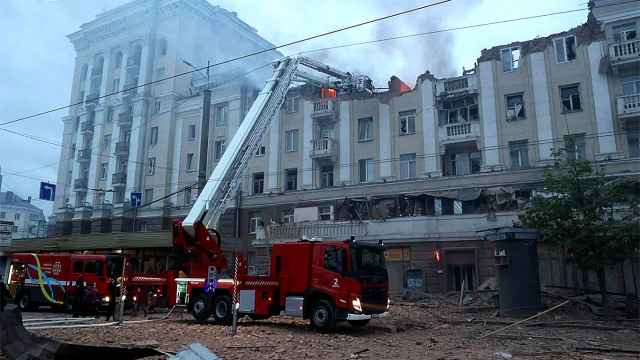The new head of the Central Bank has vowed to continue her predecessor's battle against inflation, resisting calls for radical monetary stimulus and a weaker ruble to revive the economy.
A first interest rate cut could come in the third quarter of this year, but only if inflation is clearly falling, Elvira Nabiullina said in an interview before she takes charge at the financial regulator Monday.
In wide-ranging remarks, Nabiullina also said that without deep structural reforms and successful efforts to stamp out corruption, Russia’s $2 trillion economy cannot attain a goal of 5 percent annual growth set by the Kremlin.
"With the current structure of our institutions, 5 percent is just impossible," said Nabiullina, who has been chief economic adviser to President Vladimir Putin for the past year.
"There's no way we can achieve that with monetary policy alone. Attempting to stimulate growth with Central Bank liquidity injections would have only a short-term effect.
"The long-term impact would in all probability be negative. We could end up with stagflation," she added, referring to a toxic combination of economic stagnation and high inflation.
Her comments touched on the theme of an address by Putin to investors in St. Petersburg on Friday last week, when he admitted that Russia's era of oil-fueled growth was over and announced a drive to invest in infrastructure projects.
Not So Dovish
Nabiullina had been expected by some analysts to pursue a more dovish course than her predecessor Sergei Ignatyev, who consolidated the Central Bank's inflation-fighting credentials during his 11 years as chairman.
Yet since emerging as a compromise choice for the job, Nabiullina, 49, has advocated policy continuity, arguing that progress should first be made in bringing down high inflation before interest rates can be reduced.
"An interest rate cut is possible in the third quarter if inflation falls and a combination of other factors indicate that it will fall further," the former economy minister said.
While she said a decline in inflation was highly likely, she cautioned that if demand for credit was lacking, lower interest rates could just fuel further capital outflows, a chronic problem in Russia that reflects low confidence among investors.
Nabiullina repeated her criticism of Finance Minister Anton Siluanov's call last week for a weaker ruble exchange rate, which he said would boost export revenues and growth, helping the government to meet its spending commitments.
"We should never adopt a managed ruble exchange rate in order to weaken it especially," Nabiullina said. "That would be a very serious step with negative consequences."
Inflation VS Growth
The Central Bank has held interest rates for the past nine months as headline inflation has risen above the Central Bank's 5 to 6 percent target range to touch 7.4 percent in May.
Meanwhile, economic growth has weakened to 1.8 percent in the first five months of this year, its slowest in four years.
Those year-on-year figures have been skewed on the growth side by Putin's heavy pre-election spending, and on inflation by last year's drought-hit harvest.
Those so-called “base” effects should unwind after mid-year, potentially opening the way for the Central Bank to lower interest rates that it has held steady for the past nine months.
"We have high hopes [of being able to cut rates in the third quarter] because of the anti-inflationary factors that continue to work and the base effect from last year," said Nabiullina.
Yet she played down expectations of a rate cut at the first policy meeting she chairs in the first half of July.
To reduce the cost of credit to the real economy, banks need to cut their operating costs and credit risks. That in turn would let them lower lending margins and still turn a profit.
"These risks are very high in our economy," said Nabiullina, estimating the scope for reducing bank loan rates at 1 to 1.5 percentage point with the help of stronger creditor rights.
While rejecting steep rate cuts, Nabiullina gave cautious support to offering refinancing to banks for longer terms. The Central Bank has cut rates on one-year loans by 0.75 percentage points this year, but such term lending accounts for only a small part of its refinancing operations.
She expressed caution, though, about widening the availability of currency swaps as a refinancing tool, saying that posed a risk of accelerating net capital outflows.
Related articles:






